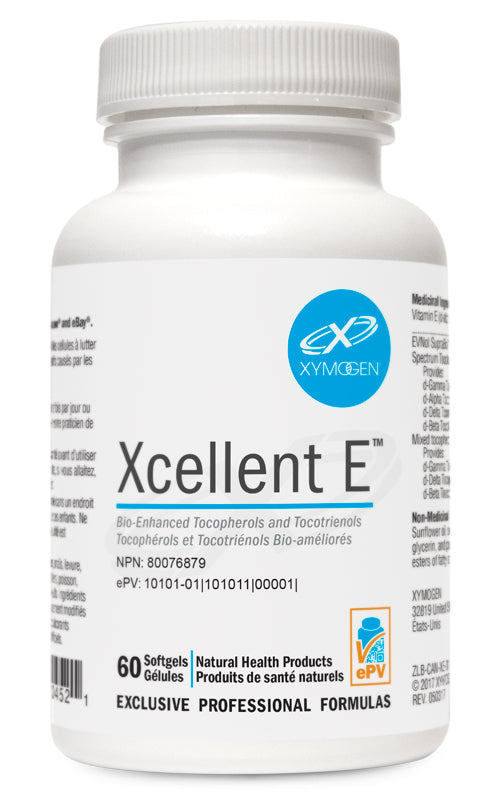
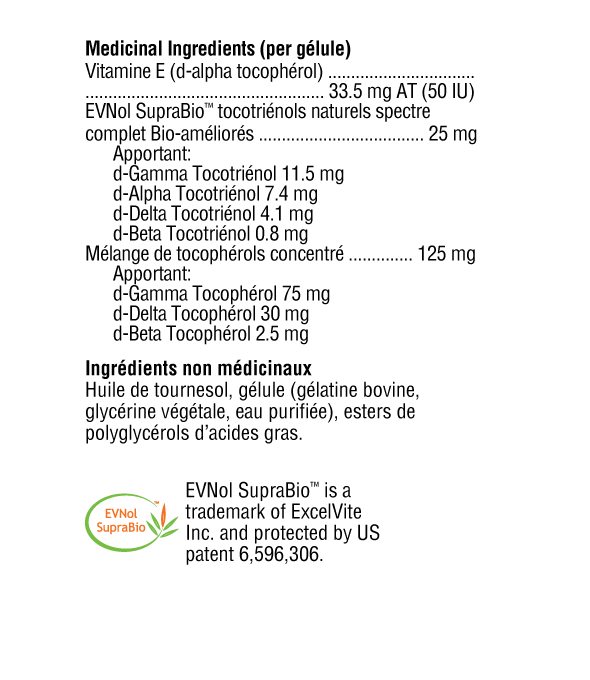
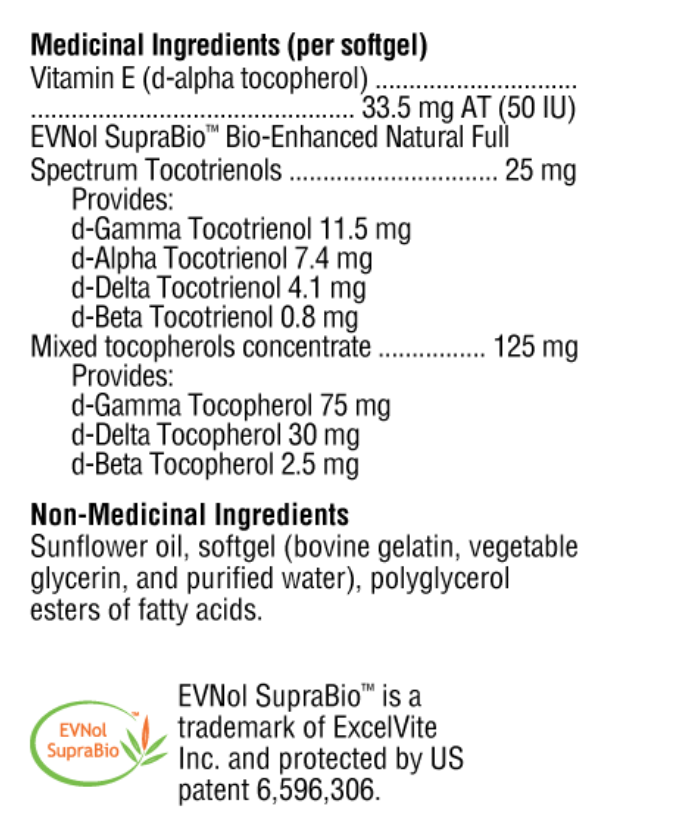
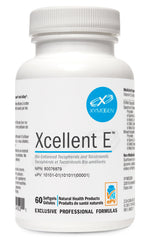
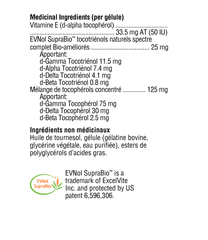
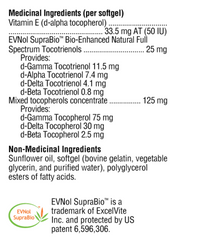
Excellent E
- 51.99$
0.00$- 51.99$
- Unit price
- per
Please hurry! Only 0 left in stock
Subtotal:
51.99$
Description
x- Source of antioxidants that help cells fight oxidative damage caused by free radicals
Vitamin E, in its natural form, comprises eight different compounds: alpha-, beta-, gamma-, and delta-tocopherols and alpha-, beta-, gamma-, and delta-tocotrienols. Tocopherols and tocotrienols are important for human health. Known as the "master antioxidant," vitamin E has the ability to mitigate oxidative stress, and antioxidant-related effects on various organs and systems have been extensively researched. More recently, non-antioxidant mechanisms have been proposed, such as those affecting cellular signal transduction and gene expression.
Produits recommandés
Produits récemment consultés
- Choosing a selection results in a full page refresh.




